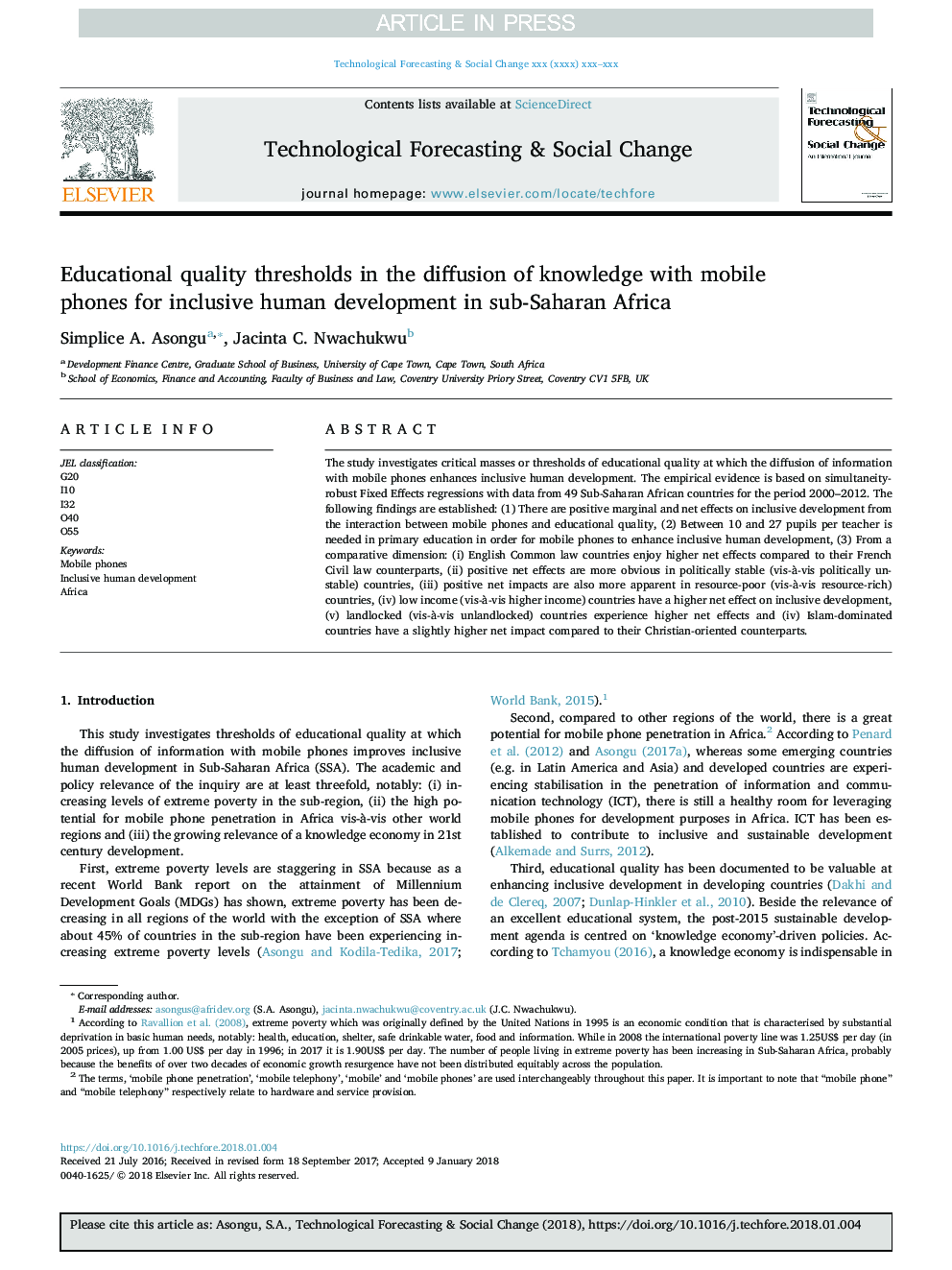| Article ID | Journal | Published Year | Pages | File Type |
|---|---|---|---|---|
| 7255536 | Technological Forecasting and Social Change | 2018 | 9 Pages |
Abstract
The study investigates critical masses or thresholds of educational quality at which the diffusion of information with mobile phones enhances inclusive human development. The empirical evidence is based on simultaneity-robust Fixed Effects regressions with data from 49 Sub-Saharan African countries for the period 2000-2012. The following findings are established: (1) There are positive marginal and net effects on inclusive development from the interaction between mobile phones and educational quality, (2) Between 10 and 27 pupils per teacher is needed in primary education in order for mobile phones to enhance inclusive human development, (3) From a comparative dimension: (i) English Common law countries enjoy higher net effects compared to their French Civil law counterparts, (ii) positive net effects are more obvious in politically stable (vis-Ã -vis politically unstable) countries, (iii) positive net impacts are also more apparent in resource-poor (vis-Ã -vis resource-rich) countries, (iv) low income (vis-Ã -vis higher income) countries have a higher net effect on inclusive development, (v) landlocked (vis-Ã -vis unlandlocked) countries experience higher net effects and (iv) Islam-dominated countries have a slightly higher net impact compared to their Christian-oriented counterparts.
Related Topics
Social Sciences and Humanities
Business, Management and Accounting
Business and International Management
Authors
Simplice A. Asongu, Jacinta C. Nwachukwu,
